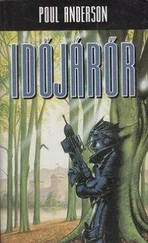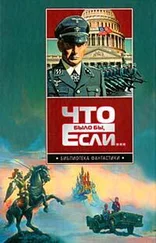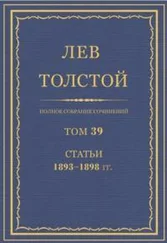Eric Flint - Carthago Delenda Est
Здесь есть возможность читать онлайн «Eric Flint - Carthago Delenda Est» весь текст электронной книги совершенно бесплатно (целиком полную версию без сокращений). В некоторых случаях можно слушать аудио, скачать через торрент в формате fb2 и присутствует краткое содержание. Жанр: Боевая фантастика, на английском языке. Описание произведения, (предисловие) а так же отзывы посетителей доступны на портале библиотеки ЛибКат.
- Название:Carthago Delenda Est
- Автор:
- Жанр:
- Год:неизвестен
- ISBN:нет данных
- Рейтинг книги:3 / 5. Голосов: 1
-
Избранное:Добавить в избранное
- Отзывы:
-
Ваша оценка:
- 60
- 1
- 2
- 3
- 4
- 5
Carthago Delenda Est: краткое содержание, описание и аннотация
Предлагаем к чтению аннотацию, описание, краткое содержание или предисловие (зависит от того, что написал сам автор книги «Carthago Delenda Est»). Если вы не нашли необходимую информацию о книге — напишите в комментариях, мы постараемся отыскать её.
Carthago Delenda Est — читать онлайн бесплатно полную книгу (весь текст) целиком
Ниже представлен текст книги, разбитый по страницам. Система сохранения места последней прочитанной страницы, позволяет с удобством читать онлайн бесплатно книгу «Carthago Delenda Est», без необходимости каждый раз заново искать на чём Вы остановились. Поставьте закладку, и сможете в любой момент перейти на страницу, на которой закончили чтение.
Интервал:
Закладка:
“As far as I know, it’s never happened.”
The legionnaires stared.
“What do you mean?” croaked one of them. “What do you mean-never?”
The Medic shook his head, a gesture he had picked up from his long immersion among humans. “Not that I know of. I’m not saying it never happened-way, way back toward the beginning of the Federation, sixty or seventy thousand years ago. But I know it hasn’t happened in a very long time.”
The Romans were practically goggling, now.
Again, the Medic shook his head. “You don’t understand. You all think like-like Romans. All humans seem to think that way-even modern ones like Trumbull. The Guilds-and their Federation-are merchants. Profit and loss, that’s what sets their field of vision. The Guilds fight each other, now and then, but it’s never anything like that-that massacre Trumbull ordered. After one or two of their ships gets banged around-they hardly ever actually lose a ship-the Guild that’s getting the worst of it just offers a better deal. And that’s it.”
The room was silent, for over a minute, as the Roman veterans tried to absorb this fantastical information. Ainsley was reminded of nothing so much as a pack of wolves trying to imagine how lapdogs think.
Suddenly, one of the legionnaires erupted in laughter. “Gods!” he cried. “Maybe this crazy Gha scheme will work after all!” He beamed approvingly at the huge figure of Fludenoc. “And at least we’ll have these damned giant toads on our side, this time.”
Fludenoc barked, in the Gha way of humor.
“Only some of us, you damned monkey shrimp,” he retorted. “In the beginning, at least. All the members of the Poct’on will join, once they learn. But most Gha do not belong to the secret society, and it will take time to win them over.”
“That doesn’t matter,” interjected Gaius. “The new legions are the heart of the plan. They’ll have to be human, of course. There aren’t very many Gha to begin with, and half of them are scattered all over the galaxy. Whereas we-!”
He grinned and glanced at his watch. “Let’s stop for a moment, comrades. I want you to watch something.”
He nodded at Rusticanus. The first centurion picked up the remote control lying on a nearby table and turned on the television. The huge screen on the far wall suddenly bloomed with color-and sound.
Lots of sound.
Wincing, Rusticanus hastily turned down the volume. In collusion with Gaius, he had already set the right channel, but he hadn’t tested the sound.
The legionnaires were transfixed. Gaping, many of them.
“This scene is from Beijing,” said Vibulenus. “The small square-the one that looks small, from the camera’s height-is called Tien-an-Men.”
The scene on the television suddenly shifted to another city. “This is Shanghai,” he said.
Another scene. “Guangzhou.”
Another. Another. Another.
“Nanjing. Hangzhou. Chongqing.”
China was on the march. Every one of those great cities was packed with millions of people, marching through its streets and squares, chanting slogans, holding banners aloft.
“It’s not just China,” said Rusticanus. His voice, like that of Gaius, was soft.
Another city. More millions, marching, chanting, holding banners aloft.
“Bombay.”
Another. “Paris.”
Another. Another. More and more and more.
Sao Paolo. Moscow. Los Angeles. Lagos. Ciudad de Mexico.
On and on and on.
A different scene came on the screen. Not a city, now, but a hillside in farm country. The hillside itself-and everywhere the camera panned-was covered with an enormous throng of people. Speeches were being given from a stand atop the ridge.
“That is called Cemetery Ridge,” announced Rusticanus. “It is near the small town of Gettysburg in the North American province called Pennsylvania. These people have gathered here to participate in what they are calling the Rededication.”
Harshly: “Most of you ignorant sods won’t understand why they are calling it that. But you can find out easily enough by reading a short speech which a man named Lincoln gave there not so very long ago. He was a ‘stinking politician,’ of course.”
None of the legionnaires, Ainsley noted, even responded to the jibe. They were still utterly mesmerized by the scenes on the television.
The historian glanced around the room. Its other occupants, mostly aliens, were equally mesmerized-the Gha, Quartilla, the two Medics and the Pilot.
But only on the faces of the legionnaires did tears begin to fall.
They, like the others, were transfixed by the unforgettable images of sheer, raw, massive human power. But it was not the sight of those millions upon millions of determined people which brought tears to Roman eyes. It was the sudden, final knowledge that the world’s most long-lost exiles had never been forgotten.
One thing was common, in all those scenes. The people varied, in their shape and color and manner of dress. The slogans were chanted in a hundred languages, and the words written on a multitude of banners came in a dozen scripts.
But everywhere-on a hillside in Pennsylvania; a huge square in China-the same standards were held aloft, dominating the banners surrounding them. Many of those standards had been mass-produced for the occasion; many-probably most-crafted by hand.
The eagle standard of the legions.
Gaius rose. Like Rusticanus, he also adopted a theatrical pose, pointing dramatically at the screen.
“There are twelve billion people alive in the world today,” he said. “And all of them, as one, have chosen that standard as the symbol of their new crusade.”
The tribune’s eyes swept the room, finally settling on the scarred face of Clodius Afer.
“Will history record that the first Romans failed the last?” he demanded.
Rusticanus switched off the screen. For a moment, the room was silent. Then, Clodius Afer rose and (theatrically) drained his goblet.
Theatrically, belched.
“I never said I wouldn’t do it,” he announced. With a dramatic wave at the screen:
“Besides, I couldn’t face my ancestors, knowing that all those innocent lads went off to war without proper training from”-dramatic scowl-“proper legionnaires.”
Very dramatic scowl: “The poor sorry bastards.”
XIII
Is this where you died?” asked Ainsley.
For a moment, he thought Gaius hadn’t heard him. Then, with no expression on his face, the former tribune shrugged. “I don’t think so, Robert. I think we pretty much razed that fortress after we took it. I don’t remember, of course, since I was dead when it happened.”
Gaius turned his head, examining the walls and crenellations of the castle they were standing on. “It was much like this one, though. Probably not far from here.” He gestured toward the native notables standing respectfully a few yards away. “You could ask them. I’m sure they remember where it was.”
Ainsley glanced at the short, furry beings. “They wouldn’t remember. It was so long ago. Almost two thousand years, now. That was one of your first campaigns.”
“They’ll know,” stated Gaius firmly. “They’re a very intelligent species, Robert. They have written records going back well before then. And that was the battle that sealed their fate.”
He scanned the fortress more carefully, now, urging Ainsley to join him in that inspection with a little hand gesture.
“You see how well built this is, Robert? These people are not barbarians. They weren’t then, either. It was a bit of a shock to us, at the time, coming up against them. We’d forgotten how tough smart and civilized soldiers can be, even when they’re as small as these folk.”
His face grew bleak. “Two thousand years, Robert. For two thousand years these poor bastards have been frozen solid by the stinking Doges. The ruinous trade relations the Guild forced down their throat have kept them there.”
Читать дальшеИнтервал:
Закладка:
Похожие книги на «Carthago Delenda Est»
Представляем Вашему вниманию похожие книги на «Carthago Delenda Est» списком для выбора. Мы отобрали схожую по названию и смыслу литературу в надежде предоставить читателям больше вариантов отыскать новые, интересные, ещё непрочитанные произведения.
Обсуждение, отзывы о книге «Carthago Delenda Est» и просто собственные мнения читателей. Оставьте ваши комментарии, напишите, что Вы думаете о произведении, его смысле или главных героях. Укажите что конкретно понравилось, а что нет, и почему Вы так считаете.









